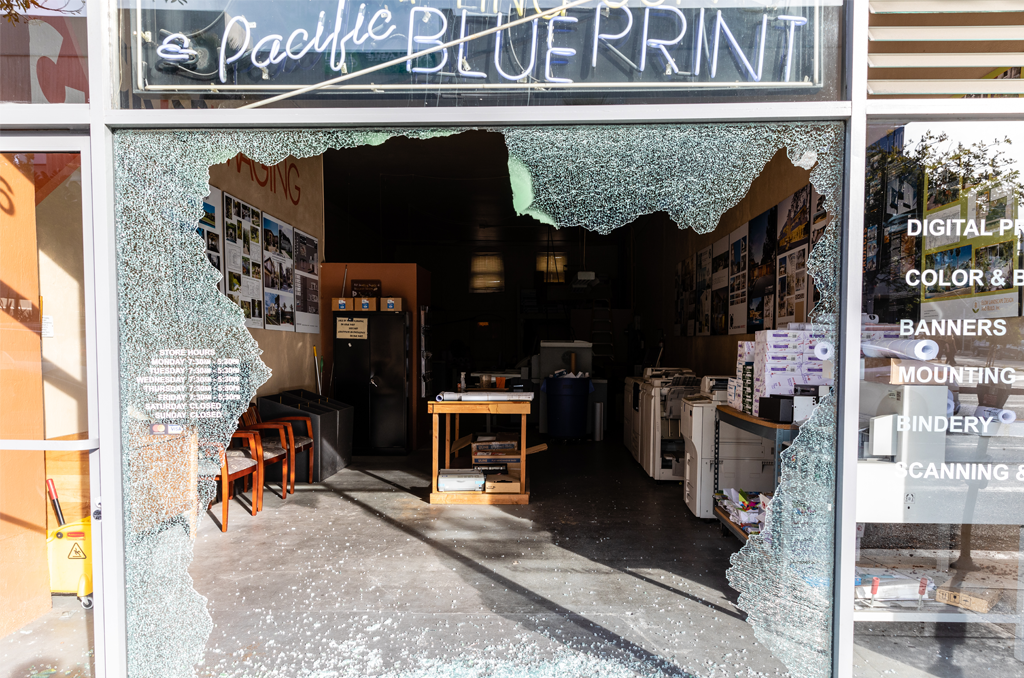Looted storefront business – Courtesy: Shutterstock – Image by magraphy
Yesterday, Florida Gov. Ron DeSantis officially signed and approved a new measure that vows to crack down on rioting, property damage, and violence during protests.
DeSantis called the new law the “strongest anti-rioting, pro-law enforcement measure in the country.”
CS/HB 1 – Combating Public Disorder was signed into law to protect law enforcement officers during a protest, justifiably punish rioters and members of the community who accelerate the furtherance of property damage, prohibiting cyber-intimidation by publication, and a slew of other sweeping measures.
At the Polk County press conference in Central Florida, the Florida governor said the new law was intended to send a strong message to protesters who did anything except peacefully protest.
“I think this bill that I’ll sign into law shows the State of Florida takes public safety very seriously,” DeSantis said.
The Sunshine State experienced minimal amounts of violence in comparison to cities such as Minneapolis, Minn., and Portland, Ore., in the wake of the death of George Floyd.
Despite incurring noticeable but minimal damage compared to the cities mentioned above, Florida lawmakers and the governor were keen on delivering a united message to make it crystal clear that any exacerbation leading to unruly behavior would not be tolerated moving forward.
“If you riot, if you loot, if you harm others, particularly if you harm a law enforcement officer during one of these violent assemblies, you’re going to jail,” he added.
Downtown and rural municipalities in the state received the brunt of the clap back, with protesters taking to the streets and clogging major highways to address police brutality for hours on end.
But like every law, there is heavy opposition, namely claiming it infringes on people’s right to free speech and assembly.
“To be clear, the goal of this law is to silence dissent and create fear among Floridians who want to take to the streets to march for justice,” said Micah Kubic, executive director of the American Civil Liberties Union of Florida.
Others believe the law disproportionately affects minorities and people of color.
While the law certainly places emphasis on violent protests, property damage, and local municipality liability, Republican lawmakers responsible for the bill have repeatedly stated that Floridians have all the right to “peacefully protest.”
“There’s nothing in this 60-page bill that makes it a crime to be a peaceful protester,” said Florida House Speaker Chris Sprowls.
In the end, the law is effective immediately, and the state will have to monitor any activity regarding the imminent George Floyd trial decision news.
Are you interested in Florida’s government? For stories like this and much more: Florida Insider is dedicated to educating, entertaining, and informing its readers about everything Florida. Easy to read content at the palm of your hands and covering the stories that matter.
Mike has more than 30 years of experience in marketing and public relations. He once owned his own agency and has worked with some of the largest brands in the world.

